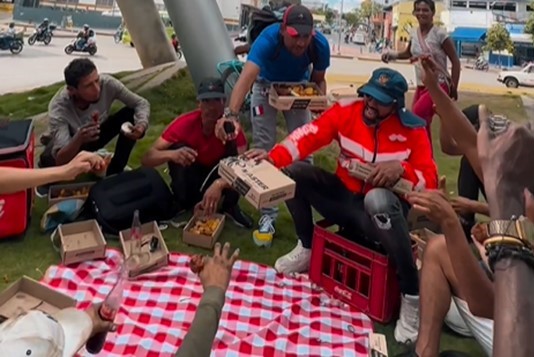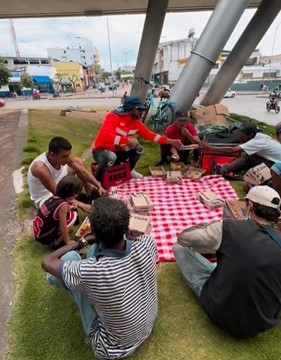Welcome to Around the Table, a regular series where we talk to fascinating people in our network and share the incredible work they are doing in their community. Pull up a chair and join us for conversation and connection.
Name: Victor Gonzalez, Director of the Mica Sonrisas Foundation
Company: Mica Sonrisas Foundation
Where to Find You: @mytorvg and @mica.sonrisas on Instagram
How was the Mica Foundation born and what motivated you to create an organization to help disadvantaged populations in Colombia?
Mica [Me.ka] is short for “Mi Cámara” (My Camera). Mica began in a photography studio in the city of Bucaramanga, Colombia. As a group of photographers, we wanted to capture the candid smiles of children with our cameras, but more so, we endeavored to show the interesting realities of our country seen through a lens.
During our photographic explorations in coastal towns, we focused on the curious fact that despite not having much, children were constantly smiling. Even though they lived in very vulnerable and poor conditions, these kids remained hopeful. We wanted to preserve and strengthen this hope represented in their warm smiles.
As a photographer, I realized that my camera could be utilized in a different way and so could my hands. I learned that my heart could beat strongly toward people I didn’t even know and that through my actions, I was able to instill optimism in someone in need.
I went from just being a photographer to becoming a philanthropist with the purpose of demonstrating to the world that everything is an equilibrium or a balance and that we need to redistribute. Just as life had given me the opportunity to have it all, I could also give back to someone who truly needed it.
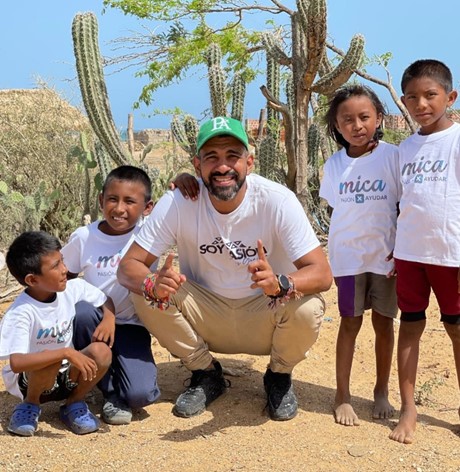
In what ways has the Mica Foundation benefited people in need and what causes and groups do you focus on?
Mica’s slogan is “Living, feeling, and sowing a passion to help.” We seek to show the world that helping others is one of the best ways to transform society for the better and that lending a hand is how we evolve as human beings.
Among the groups we have helped are different indigenous tribes in La Guajira and the outskirts of the Sierra Nevada in the North of Colombia. We have also helped natives who arrive in our city of Bucaramanga. These populations particularly struggle with malnutrition and dehydration issues and lack infrastructure and government support.
Some of these tribes are located in arid regions where national and international big-scale coal and mineral extraction takes place. Despite the significant royalties these operations yield, they don’t receive adequate care and protection against the environmental consequences of open-cast mining and overall poverty in the area.
We strive to provide them with food, water, and other necessities. Moreover, our core project is donating mobility for education, which means facilitating bikes for children to go to school. During our visits to indigenous and other low-income areas, we discovered that kids had to walk 10 kilometers or more to reach the nearest school. This long trek under the scorching sun made their access to education quite difficult. We set out to mitigate this problem and reduce transportation times by bringing them hundreds of bicycles, which also served as a means of green transportation for Wayuu families in the Guajira peninsula.
In terms of communication, marketing, and public relations, what have been the most successful strategies to engage with the public, promote your cause, and raise funds?
Social media is our main channel of communication. Particularly, we have focused on strategizing via Instagram which is our most powerful social media network. We use influencer marketing and seek collaborations with celebrities and local brands, as well as partnerships with national companies. We directly appeal to them publicly and also send requests privately to invite them to join our cause. By establishing connections and having honest conversations about our passion for helping others, we have had a great response from actors, singers, community organizers, small businesses, and brands.
We are proud to say that all our campaigns have achieved positive results. Despite not having any type of government or religious affiliation, we continue to reach new goals as a small nonprofit through organic engagement. We get people to fall in love with our project not just because of the energetic and passionate attitude with which we approach every activity, but also because we have reached a high level of transparency and credibility that allows people to trust in our mission.
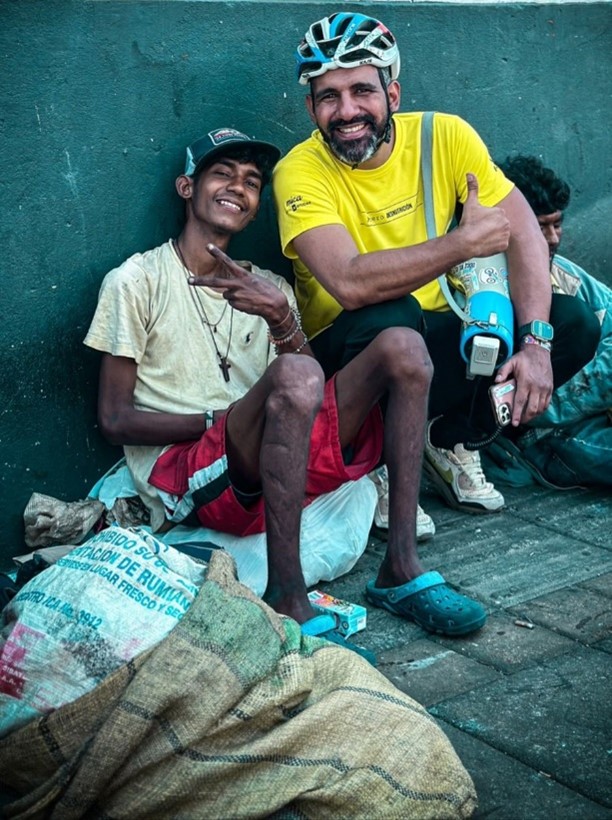
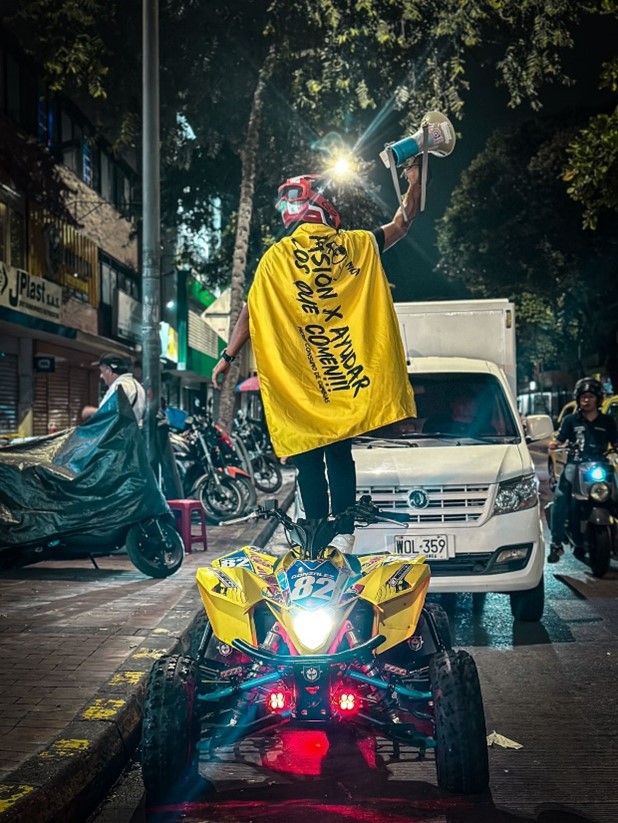
What lessons learned and advice can you share with other nonprofits from developing countries that seek positive changes in their communities?
My advice to anyone who wants to engage in philanthropic activities is to correctly administrate the resources they gather. For any social entrepreneurial endeavor, one needs to turn the projects into self-sustaining initiatives. We don’t seek personal profits, but also don’t want to generate losses because we need to continue helping people. Therefore, being frugal with resources, seeking volunteers and support, and believing in the impressive power of the work we do are lessons we have been learning along the way.
Additionally, to all the people who want to help their community, I tell them that they are never alone. There will always be hands to help and doors to open. Sometimes we may feel discouraged because social work is hard, but I guarantee you that there is always someone willing to help.
I feel like humanity is designed to help, but we need to foster and stimulate that altruism in others for it to be manifested in actions. I encourage everyone to never falter, to bring that message of selflessness everywhere they go, and to practice empathy and tolerance. This is the best way to transform society and evolve as conscious human beings. If you hear me or read this blog, please continue helping others in any way you can. The world needs people like you and me, willing to make a difference and spark positive change.
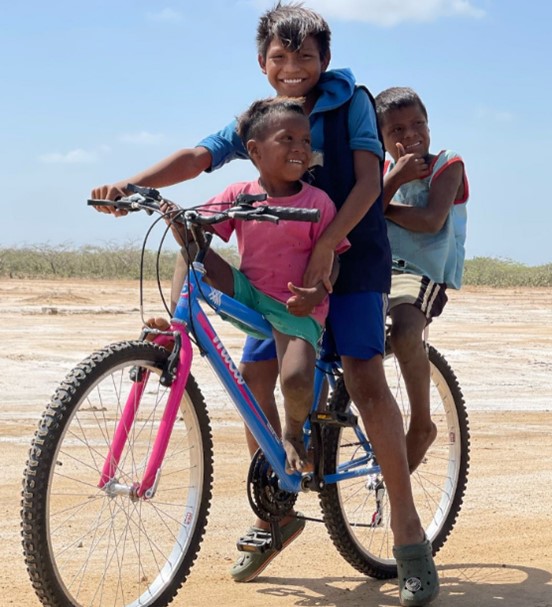
What impact do you expect to have through your work and how do you see Mica in the future?
From the people I help every day, I expect nothing in return. However, there is an undeniable satisfaction in being able to contribute and I would like to be recognized as a “social rock star.” I am working to help the biggest amount of people possible and would like to position Mica as a reference for individuals and organizations pursuing philanthropic initiatives. I want people to think of Mica when they think of supporting others. My biggest aspiration, however, is to instill this message of disinterested and selfless concern for the well-being of others into as many individuals as possible.
In cities like Bucaramanga, it is quite challenging to see results with social projects that don’t have governmental or religious support. Nevertheless, I have transformed the way to gather aid and I have been rocking this way of helping for years, taking our non-profit to the next level. I look forward to sharing this ecstatic vibe with the world and seeing more people fall in love with our projects.
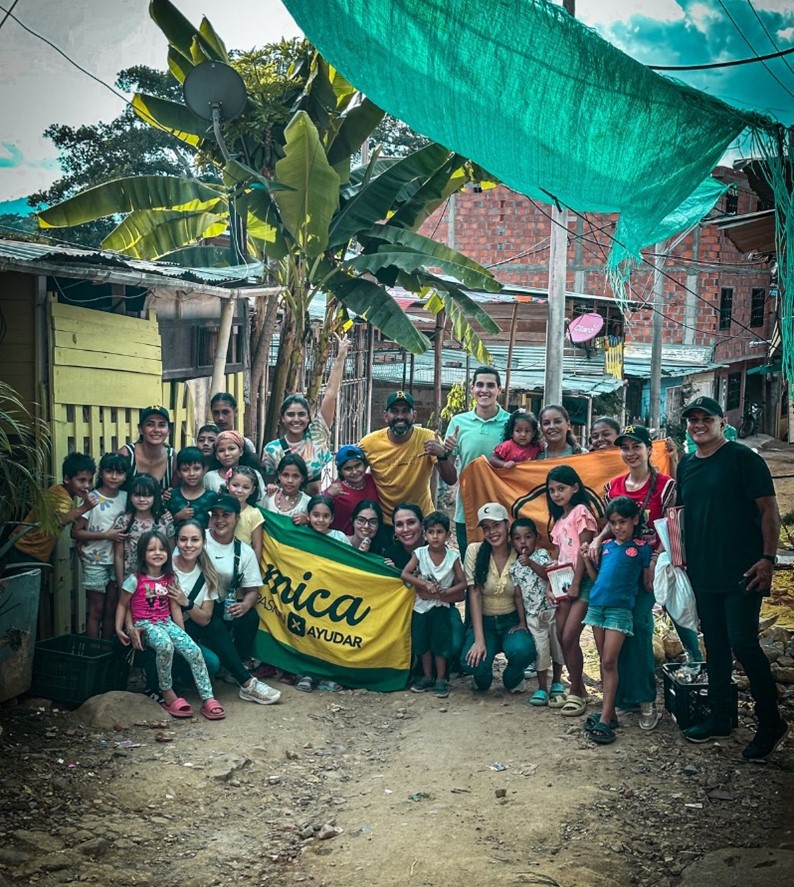
If we were literally “around the table” right now, what food would you have brought to share?
I love fast food! Especially burgers and pizza. However, my absolute favorite food is the one I share with my friends who do not have a home. Preparing warm meals and bringing them to those in the streets who long for love and hope is my favorite way to enjoy food.
